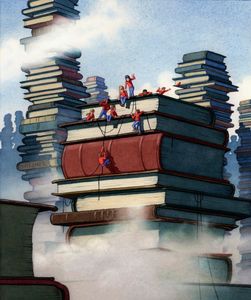Thanks for taking the time to let us know how you're doing! To begin, can we tell our readers how many years you spent at BU?
I don't know, can you? (But I spent 3 years at BU).
Where do you currently live?
In a constant state of anxiety! I reside in Riverside, California, though.
Where do you work and what position do you hold?
I'm not actually employed or searching for a job right now; I'm writing and working on publishing various pieces, along with composing, while I focus on Grad School.
What type of work have you done up until now?
Per official work, I've labored with various political and activist organizations, and am gratified to say that I was one of the founding members of an activist organization at Boston University; I've also worked as a research assistant, while my longest tenure was working in the Core Curriculum office.
Aside from this, I've worked primarily on writing and publishing.
Now that you're a few years past graduation, looking back what would you say have been the benefits of your Core education?
I suppose the common answer is: Core taught me to think critically (looking at you, Chloe); but of course, everyone learns to think. The most important thing my Core education taught me was that there are fantastic people all around us and all around the world.
We seem always to look up to figures of the past -- literary giants like Shakespeare or Dickinson, philosophers like Nietzsche or Rousseau, or artists like Rembrandt or Monet-- but we often forget that there exist absolute geniuses around us today, and that we need only to find them. It's exciting to imagine having dinner with Jane Austen or Virginia Woolf, but how exhilarating is it to actually have coffee with an expert who knew Beckett, or a knighted critic, or a director and specialist in drama? Core taught me that sometimes, we need to walk away from the past and stand with the brilliance of today. And Core gave me ready access to such people.
What book did you encounter in the Core that impacted you the most?
Alas, it is difficult to choose but one! Perhaps, though, it was the poetry -- specifically, Emily Dickinson's collection.
Prior to Core, I had never really enjoyed poetry, and I especially disliked Dickinson (for whatever absurd reason my younger self had). I remember, upon seeing the syllabus, I felt as though I would read one or two of Dickinson's poems and skim the rest--but when I went to the lecture on Dickinson, and especially when I began reading her, I fell in love. The way she (and poets in general I suppose) was able to manipulate language to create le mot paysage is astounding, resonating within every part of the soul.
My otherfavorite book was Genealogy of Morals.
What do you miss more about the Core office?
For this question I am compelled to answer with a cliche: the people. The students are fantastic, always engaging in debates (and sometimes arguments) or discussing something they just read; and the faculty are wonderful, especially the Joyce to my Beckett, David Green.
In CAS 119, you can walk in at 9 AM, any day of the week, grab a cup of coffee, ramble by the office door of a professor, and without further prelude get caught-up in an hour-long discussion. The faculty in the Core Curriculum want to talk to you, about their research, about your research, about ideas, about so much great stuff.
Is it possible that the Core office is still as awesome as it was last year, when I'd stop by with free donuts for everyone on Fridays? Hard to believe. Hard to believe.
Anything else you want to share?
In the midst of my time at Boston University, Core became my home. When all else failed, I knew I could go to the Core office and find a way to get back to feeling alright. Was it was because of the fantastic friends I made there, students and professors alike? Was it because of the wisdom offered by people like his majesty, Zak "Wears Jeans for Formal Friday" Bos? All of those, and more.

Priest, seen here about to absolutely ruin his lovely suit.
Feel free to follow Priest on Instagram at priestdragon. (His middle name is Dragon. It's kinda cool.)

.jpg)






